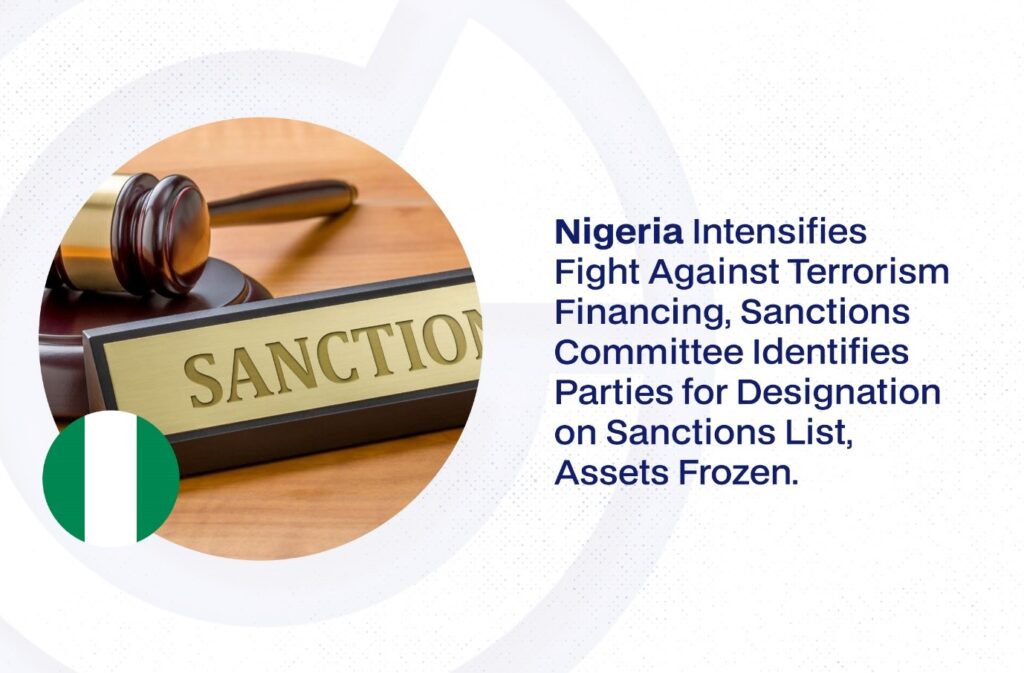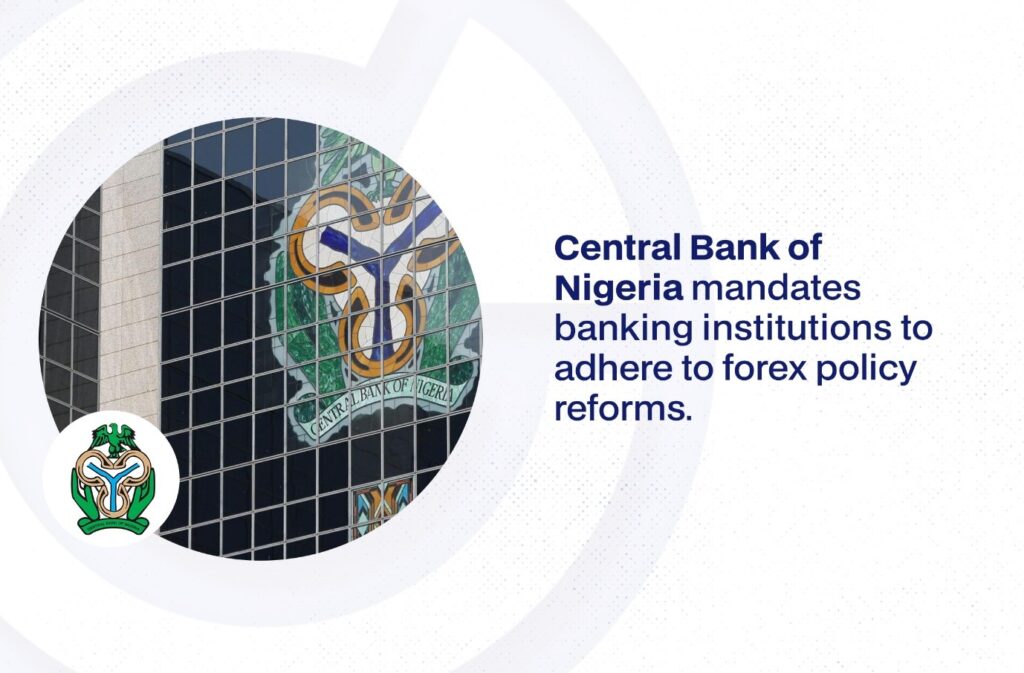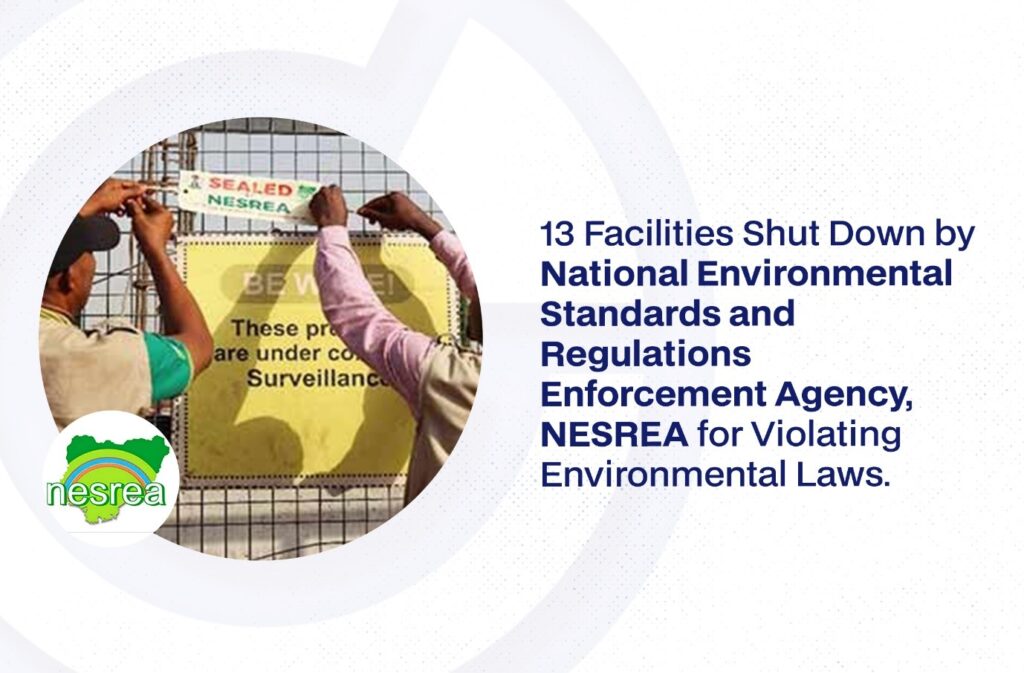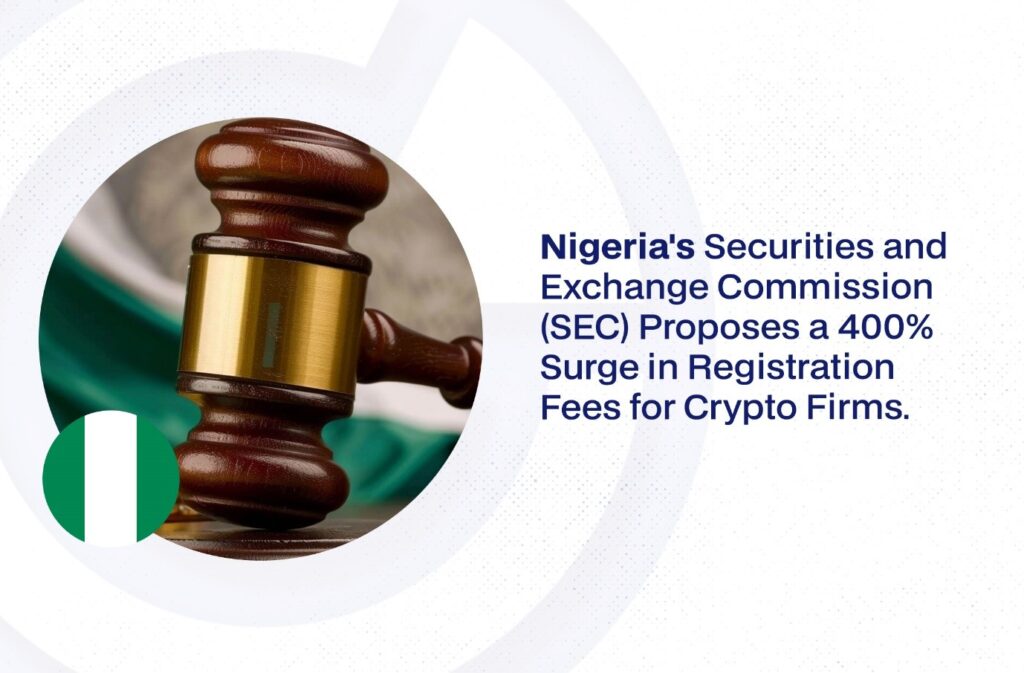
Amidst the complex tapestry of Nigeria’s socio-economic landscape, recent developments have underscored the nation’s unwavering commitment to combatting terrorism financing, enhancing environmental compliance, and adapting to evolving regulatory dynamics, particularly in the burgeoning cryptocurrency sector. With a keen focus on bolstering national security, safeguarding environmental sustainability, and fostering a conducive regulatory environment, Nigeria stands at the forefront of proactive governance. Let’s delve into the latest highlights shaping these crucial domains.
Nigeria Intensifies Fight Against Terrorism Financing: Sanctions Committee Identifies Parties for Designation on Sanctions List, Assets Frozen.

The Nigeria Sanctions Committee convened on March 18, 2024, and identified individuals and entities involved in terrorism financing for designation on the Nigeria Sanctions List. The Attorney General of the Federation, with presidential approval, designated these parties for listing. According to the Terrorism (Prevention and Prohibition) Act, 2022, the designated individuals and entities’ funds, assets, and economic resources must be immediately identified and frozen without prior notice. Financial institutions are required to report frozen assets to the Sanctions Committee and file Suspicious Transactions Reports to the Nigerian Financial Intelligence Unit (NFIU) for further analysis. The freezing obligation applies to all assets owned or controlled directly or indirectly by the designated parties, including those derived from such assets. Compliance reports should be sent to [email protected].
Central Bank of Nigeria mandates banking institutions to adhere to forex policy reforms.

The Central Bank of Nigeria (CBN) has directed banks to strictly comply with recent foreign exchange (FX) policy reforms, ahead of the dividend payment season. As part of the policy, banks are restricted from using foreign exchange gains to pay dividends to shareholders. Last year, the apex bank emphasized the need for prudent financial management and risk mitigation, directing banks to exercise utmost prudence and set aside foreign currency revaluation gains as a counter-cyclical buffer to cushion any adverse movements in the foreign exchange rate. In a letter addressed to banks yesterday, the CBN reiterated that banks shall not utilize such FX revaluation gains to pay dividends or meet operating expenses.
13 Facilities Shut Down by National Environmental Standards and Regulations Enforcement Agency, NESREA for Violating Environmental Laws.

National Environmental Standards and Regulations Enforcement Agency (NESREA) has closed down 13 facilities that refused to comply with environmental laws. The facilities were sealed for failing to abate environmental concerns ranging from Environmental Impact Assessment (EIA), Environmental Audit (EA), Environmental Management Plans, Environmental Permit etc. in both green and brown sectors. The Director General of NESREA, Aliyu Jauro, said the enforcement exercise was part of the agency’s Key Performance Indicator (KPI) to ensure compliance. The Agency had followed due process in clamping down these facilities after exhausting all relevant communications in respect of their environmental status. NESREA is a law enforcing agency under the Federal Ministry of Environment.
Nigeria’s Securities and Exchange Commission (SEC) Proposes a 400% Surge in Registration Fees for Crypto Firms.

Nigeria’s Securities and Exchange Commission (SEC) has proposed a 400% increase in registration fees for crypto firms amidst a crackdown on the sector. The proposed amendments include an increase to all supervision fees, with the SEC hoping to charge crypto firms a staggering 150 million naira registration fee. The move comes as the Nigerian naira continues to weaken against the dollar, with the government blaming the crypto industry for facilitating illegal capital outflows. The SEC also proposed doubling the minimum paid-up capital requirement for crypto service providers to 1 billion naira. The proposals aim to provide clarity to the market and incorporate suggestions from industry stakeholders.
Stay tuned for more compliance updates by visiting our website, and remember to stay compliant!
Last modified: March 22, 2024



